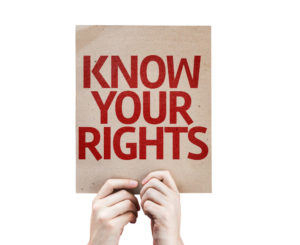Texas payday lending laws have come about as a result of numerous complaints and lawsuits filed against allegedly illegal behavior on the part of payday lenders.
Although payday lenders may seem to provide an important service for people who are in need of financial assistance as soon as possible, these payday lenders do not have the same terms as loans from other financial institutions might.
This means that Texas payday lending laws are the only form of protection available to consumers in terms of how the payday loans are structured and what actions a payday lender can take after a payday loan has not been paid in full.
A typical payday loan or auto title loan is a high cost loan that is due in full, somewhere between two weeks and one month from the time that the consumer takes it out.
Loans are often used for car payments, utilities, rent, or other recurring expenses.
Providing photo identification, proof of employment, access to a bank account and visiting a store front is a common way for someone to obtain a payday loan.
Borrowers will usually allow a lender to electronically debit their bank account for the total loan amount plus any connected fees.
These payday loans are extremely expensive due to the fees charged by a lender and Texas borrowers pay approximately $23 for every $100 that they choose to borrow.
 This means an annual percentage rate on average hits 574 percent and this makes it difficult or impossible for many people to pay the loans back.
This means an annual percentage rate on average hits 574 percent and this makes it difficult or impossible for many people to pay the loans back.
Protections in the Texas constitution prohibits lenders from violating certain Texas payday lending laws.
Texas payday lending laws are there to assist consumers and to give them some form of recourse in the event that they need to take action against a payday lender that has violated the laws.
Lenders are prohibited from charging more than 10 percent interest, unless the Texas legislature specifically authorizes a higher rate, however, a legal loophole has allowed many of these businesses to still comply with Texas payday lending laws.
Auto-title businesses and payday loans often register as credit access businesses also known as CABs under the Credit Services Organization Act.
This means that borrowers might be charged high fees for having the loan guaranteed or arranged.
A third-party lender will charge interest at or below 10 percent to avoid the licensing issues under Texas payday lending laws, but on the other hand, the CAB fees are unregulated and can lead to APRs more than 500 percent.
This can lead to a vicious cycle of debt for a user who is simply trying to get ahead or needed help in a difficult short term financial situation.
Recent information from the Consumer Financial Protection Bureau’s regulations department has shared that the payday lending regulations will become active until 2019.
If you know of a company that has violated Texas payday lending laws, you might have grounds to pursue a lawsuit with the help of an experienced attorney.
The lawyers at McDonald Worley offer a free case review. Call today!
